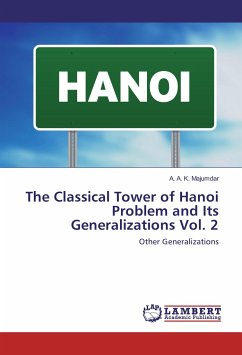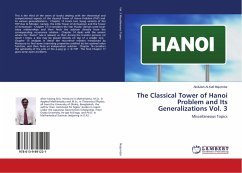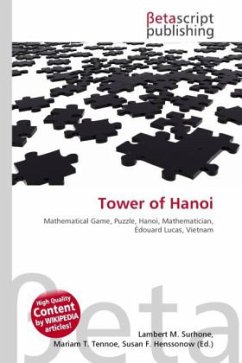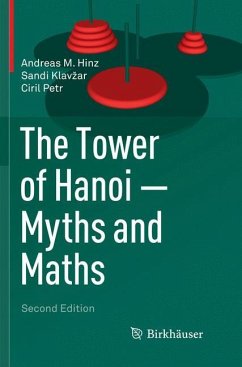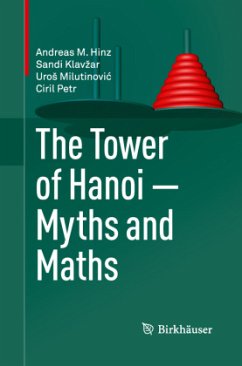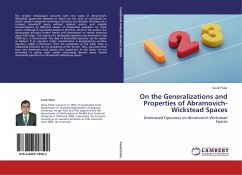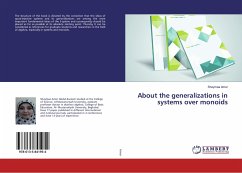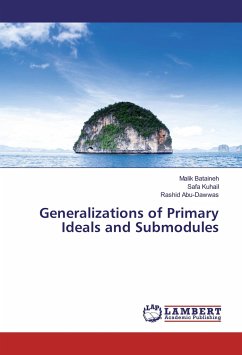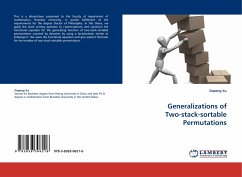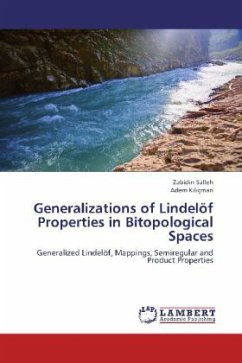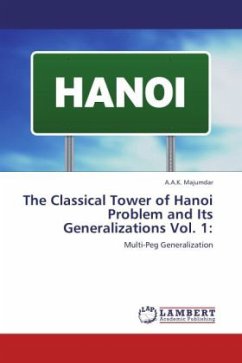
The Classical Tower of Hanoi Problem and Its Generalizations Vol. 1:
Multi-Peg Generalization
Versandkostenfrei!
Versandfertig in 6-10 Tagen
39,99 €
inkl. MwSt.

PAYBACK Punkte
20 °P sammeln!
This book deals with the theoretical and the computational aspects of the classical Tower of Hanoi Problem (THP) and its multi-peg generalization. Chapter 1 reviews the classical THP in its general form with n( 1) discs and 3 pegs, with the algorithms, both recursive and iterative. Chapter 2 considers the multi-peg generalization with n discs and p pegs, and gives some local-value relationships satisfied by M(n,p), kmin(n,p) and kmax(n,p), where M(n,p) is the presumed minimum number of moves, and kmin(n,p) and kmax(n,p) are the optimal partition numbers, and presents a recursive algorithm Chap...
This book deals with the theoretical and the computational aspects of the classical Tower of Hanoi Problem (THP) and its multi-peg generalization. Chapter 1 reviews the classical THP in its general form with n( 1) discs and 3 pegs, with the algorithms, both recursive and iterative. Chapter 2 considers the multi-peg generalization with n discs and p pegs, and gives some local-value relationships satisfied by M(n,p), kmin(n,p) and kmax(n,p), where M(n,p) is the presumed minimum number of moves, and kmin(n,p) and kmax(n,p) are the optimal partition numbers, and presents a recursive algorithm Chapter 3 gives the closed-form expressions for M(n,4), kmin(n,4) and kmax(n,4), and gives an iterative algorithm based on the divide-and-conquer approach. It is shown that, for n 6, the presumed minimum solution is the optimal solution. Chapter 4 extends the results of Chapter 3 to find the explicit forms of M(n,p), kmin(n,p) and kmax(n,p), and establishes the equivalence of four formulations of the multi-peg THP. The divide-and-conquer approach has also been extended.



